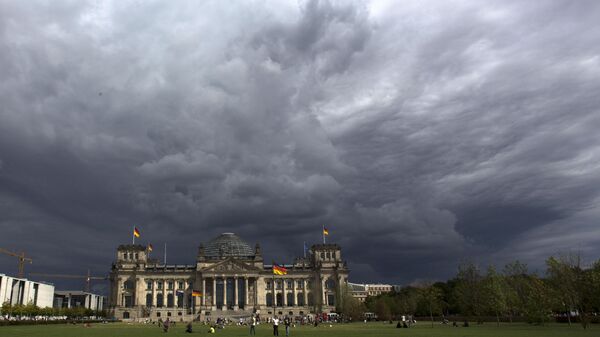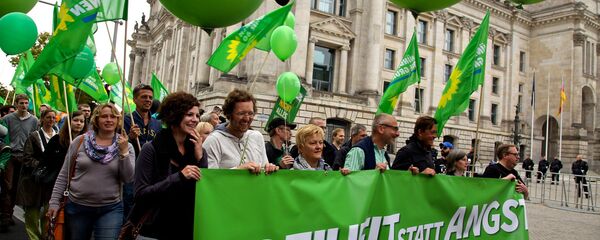Voigt, who was elected to the European parliament in 2014 as a representative of the National Democratic Party of Germany [NPD], described Germany's status as one of "post-war occupation" by the US.
"The Russian President has acknowledged, with his pleasing, clear clarification, the reasons for the denial of state sovereignty for the Federal Republic of Germany, which to this day is subject to the provisions of the Allied post-war occupation law," Voigt wrote in a blog post.
"These provisions were expressly confirmed in the Paris Agreements of 1954 and the Two Plus Four Agreement of 1990 and established the widest possible rights of the victorious powers of the Second World War. Today, however, they are only perceived from the Western powers, above all the US. President Putin is, therefore, perfectly correct in his statement that, especially in the military field, all the requirements come from Washington, and the federal republic has, at best, vassal status. German patriots have never claimed anything else," Voigt declared.
Merkel told a pre-election campaign event in Bavaria last Sunday that, "we Europeans really need to take our fate into our own hands," and "the times when we could completely rely on others are somewhat over."
According to the Russian President, Berlin's recent disillusionment with Washington can be linked to a lack of sovereignty.
"There are not so many countries in the world that have sovereignty. And Russia treasures the fact that we do have it," Putin said.
"I do not want to offend anyone, but what Mrs. Merkel said is dictated by the long-standing resentment, about limited sovereignty. And by the way, within the framework of military-political alliances, it is officially restricted. There it is spelled out what [a country] can and cannot do – and in practice it's even stricter," the President added.




